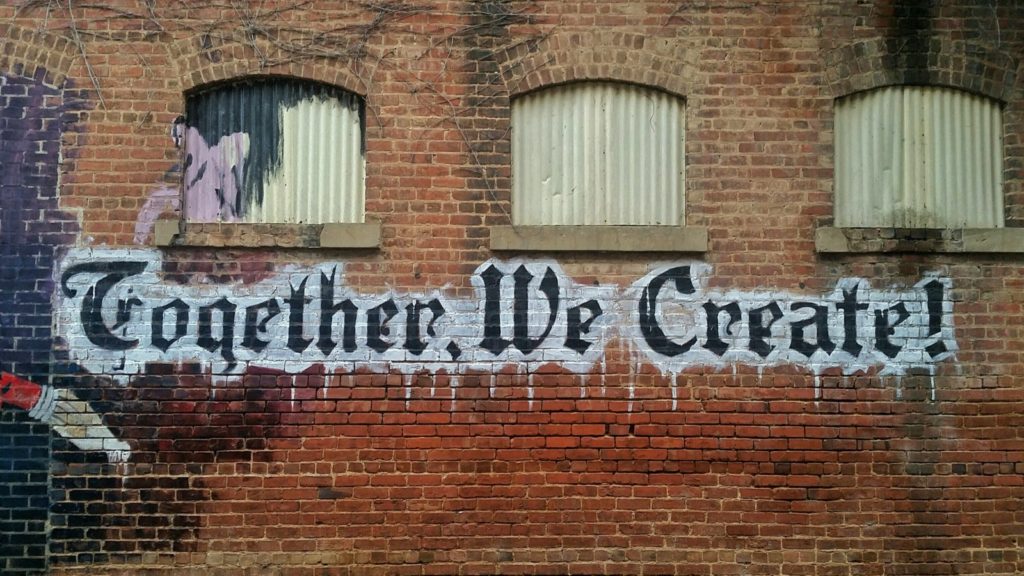Getting by with a little help with your words
Sometimes knowing your brand means knowing when to get creative help.

It’s hard to talk about yourself. How much time is spent crafting dating profiles or resumes, or finding the best anecdote to tell on Jeopardy? We all want to make a good impression and usually end up overthinking every word.
But how many of us recruit a friend to craft the perfect dating profile or edit our resume, or remind us of some crazy shenanigans we can recount on Jeopardy? I’d wager, a lot.

Sometimes you need someone to hold up the mirror and help you find the message that’ll connect. No one knows you better than you, but someone does know more about what it’s like to experience you. At A Hundred Monkeys, we are essentially the mirror-holders for businesses who need help with their words.
A lot of clients come to us because they don’t have the internal resources for the kind of creative work we do — or they claim they’re “not creative”. The latter is often arguable, because there’s a difference between not being creative and simply not having the right approach. Regardless of where a client lands on that Venn diagram, they need to outsource things like naming the company or writing a mission statement in order to actually focus on their mission.
Truth be told, we love when people who are creative for a living come to us because they need a new perspective.
I used to think it’d be more difficult for a creative professional to admit needing creative help, but really, they’re the ones most eager and willing to accept that reality. Sure, you could try to do it all yourself (so you can say “I did it” à la Quentin Tarantino at the Golden Globes) — but even he had to recruit an A-team of artists to bring his screenplay to life.

We’ve done work for a number of creative agencies led by people who’ve spent years practicing their craft and developing a vision. Usually, they’re a lot like us: they have a creative process (and timeline) that they swear by, they have strong viewpoints about the work they deliver, and they understand how to pitch and critique creative work. They’ve received enough feedback on their work to know how to talk about ours — which means knowing the difference between actionable feedback and the YouTube comments section.
They also tend to be collaboratively-minded, which is why they come to us. Instead of saying “This is my design agency, and if I beat my head against the wall just a little more, I’ll end up with something…”, they say “This isn’t working, let me get professional help.”

Two is better than one.
As objective outsiders, we usually help them see things through a new lens. We revel in getting to know them well enough to express their unique voice or sum them up in a single name. This goes for any client in any industry — but it’s particularly nice to know that someone who runs a creative business trusts us with their biggest project.
Here’s hoping more creatives follow suit so we can get our hands into every type of project out there — whether it’s naming an album, a literary character, an improv troupe, an Etsy shop for personalized maracas, a Hollywood prequel — the sky’s the limit.

